If you've played pickleball for any amount of time, you've likely been told (or read somewhere) that you should stand firm at the kitchen line and not allow your opponents to back you off it.
We're here to contradict that advice.
Let's cook.
Why most say never back off the line
Most of the time, holding your ground is absolutely what you should do at the kitchen line.
Staying close to the kitchen line:
- Eliminates some of your opponent's attacking angles
- Makes it harder for your opponent to hit the ball down at your feet
- Gives you a better chance of hitting the ball down at your opponent's feet
These are strong reasons to stay at the kitchen as much as possible. However, there are other reasons why stepping back from the line (even just a half step) can also be beneficial.
- You read that your opponent is going to speed the ball up at you
- You need more room to handle a high drive
- Your partner keeps attacking crosscourt or leaving balls up
- You need extra time
No. 1 - A speed-up is coming
There are only 14 feet between one kitchen line and the other. With players reaching in, this could be reduced to 10-12 feet.
You have less than a second (more like a half-second) to respond at such a close distance.
Because of this, if you read early that your opponent will speed up the next ball (maybe they got a dead dink, or they're known for being aggressive off the bounce), then taking a half-step back before they do can buy you precious extra time.
That half-step back could very well be the difference between the ball hitting your paddle rather than smacking you in the chest.
These Three Simple Ideas Will Level Up Your Pickleball Game
Many pickleballers want to master the more sophisticated shots in the game before focusing on some of the more routine ones. We’ve got three things to focus on to see immediate results.
 The Dink PickleballJason Flamm
The Dink PickleballJason Flamm

If they don't speed the ball up like you thought they were going to, you're still in a great position to handle whatever they send your way. Just be sure to get back to the line before the next shot.
No. 2 - Your opponent hits high drives
Players (specifically, bangers) tend to hit high drives at lower levels.
While these might not be out balls, they can still give some players fits when defending them at the kitchen line.
Next time you play someone who hits high (preferably flat) drives, take one or two steps back from the line. This will allow you to defend it better and give you more court to work with on your block or counter.
You can even counter at an angle better because playing farther back gives you more court along the sideline.
However, if your opponent can add topspin to their drive and make it dip as it crosses the net, taking a step back will make it harder for you to defend it. If they can do that, then stay up at the line as much as possible.
No. 3 - Your partner is hanging you out to dry
Attacking crosscourt is a no-no unless there's a good reason for it. However, many players do it.
If your partner has a habit of attacking crosscourt you could be in for a long day, because your opponent will have extra time to counter that attack, and it's very likely going your way.
Besides yelling at them to stop, you can counter this mistake by taking a step (even a half step) back whenever the ball heads your partner's way.
Sure, it means you have to work harder see-sawing back and forth to the line, but it's better than being body-bagged constantly because of your partner's mistakes.
There's nothing wrong with admitting that you need more time to react.
Try the Double Ball Drill Like Jay Devilliers to See the Ball Better
Learn the Double Ball Drill from pro player Jay Devilliers. It can help you build stronger muscles in your eyes and create better reflexes while at the kitchen line.
 The Dink PickleballJason Flamm
The Dink PickleballJason Flamm
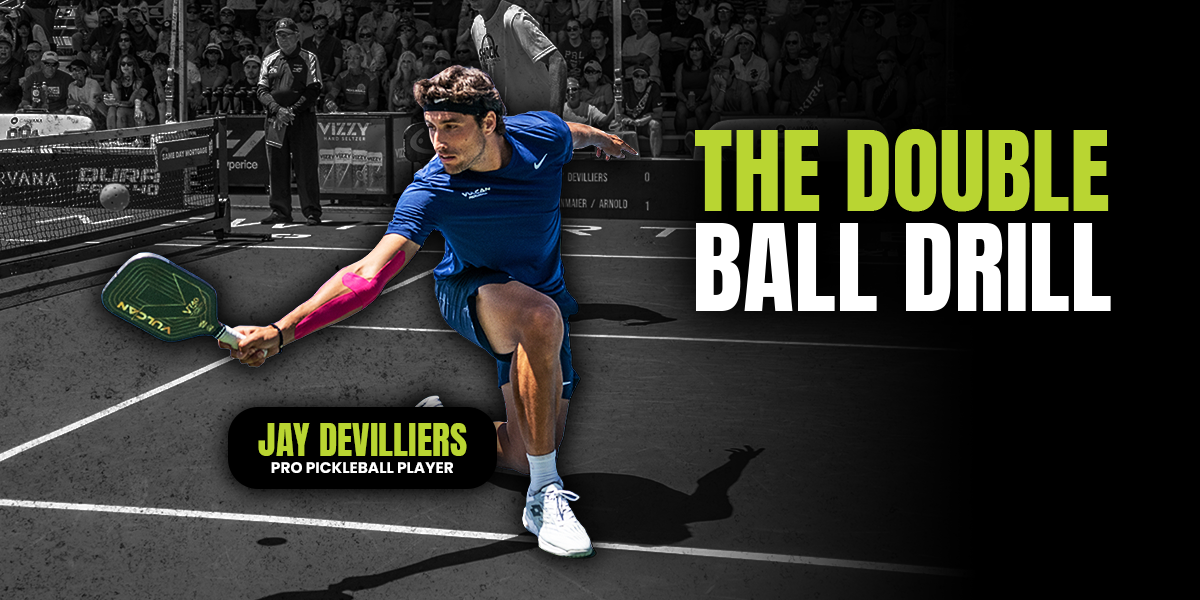
Understanding what you're strongest and weakest at can help you play better pickleball and make it more enjoyable.
Here are some instances when you should consider playing off-the-line because you need extra time:
- Your hands are slow(er) than your opponent's
- You struggle judging out balls
- Your opponent's paddle is too powerful
- You need more room to get to crosscourt dinks
While standing your ground at the line is an ideal way to play pickleball, it's not the only way. Experiment with playing half to a whole step back from the line and see if it improves your game.
Pickleball Skill Quiz
Find out your pickleball rating
 Pickleball Skill Quiz
Pickleball Skill Quiz

Anuncie Aqui / Advertise Here
Sua marca para o mundo Pickleball! / Your brand for the Pickleball world!

 English
English  Spanish
Spanish  Portuguese
Portuguese  German
German  Italian
Italian  Japanese
Japanese  French
French  Polish
Polish  Russian
Russian  Netherlands
Netherlands  Hungarian
Hungarian  Turkish
Turkish  Videos
Videos 
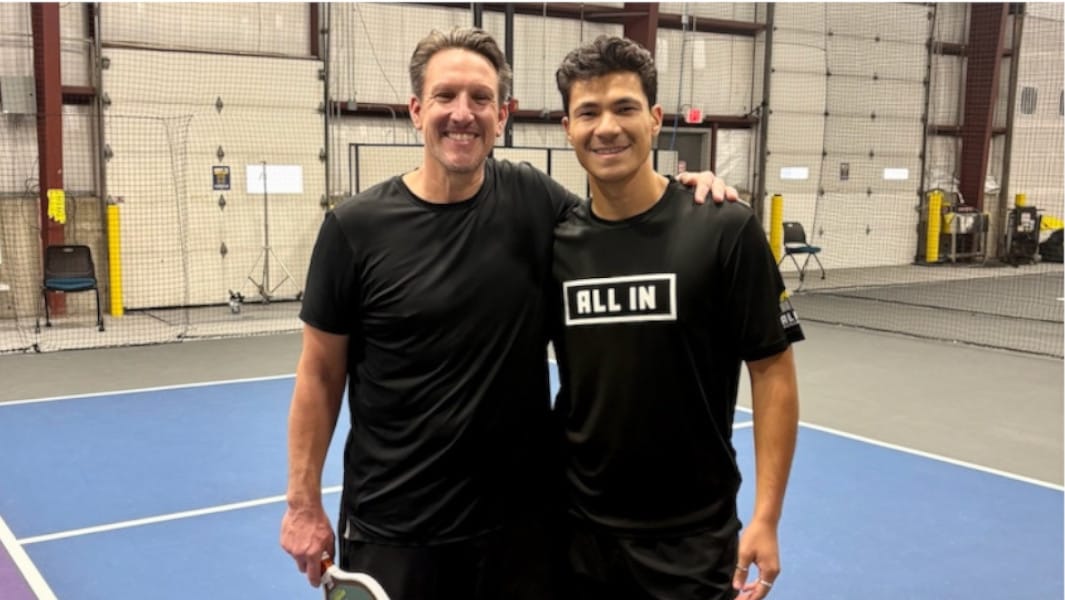
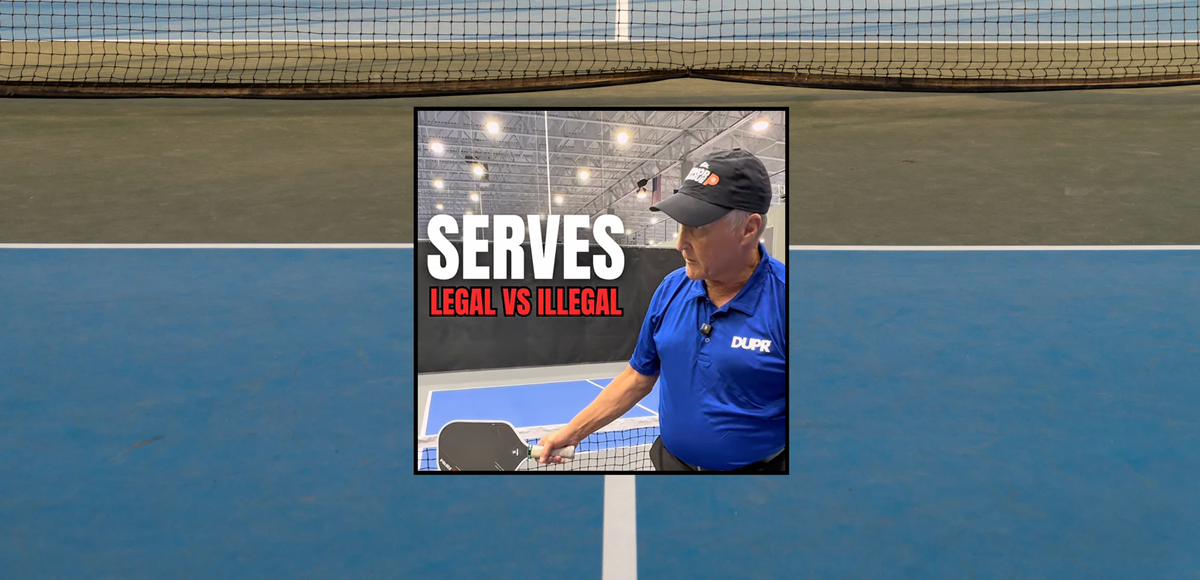
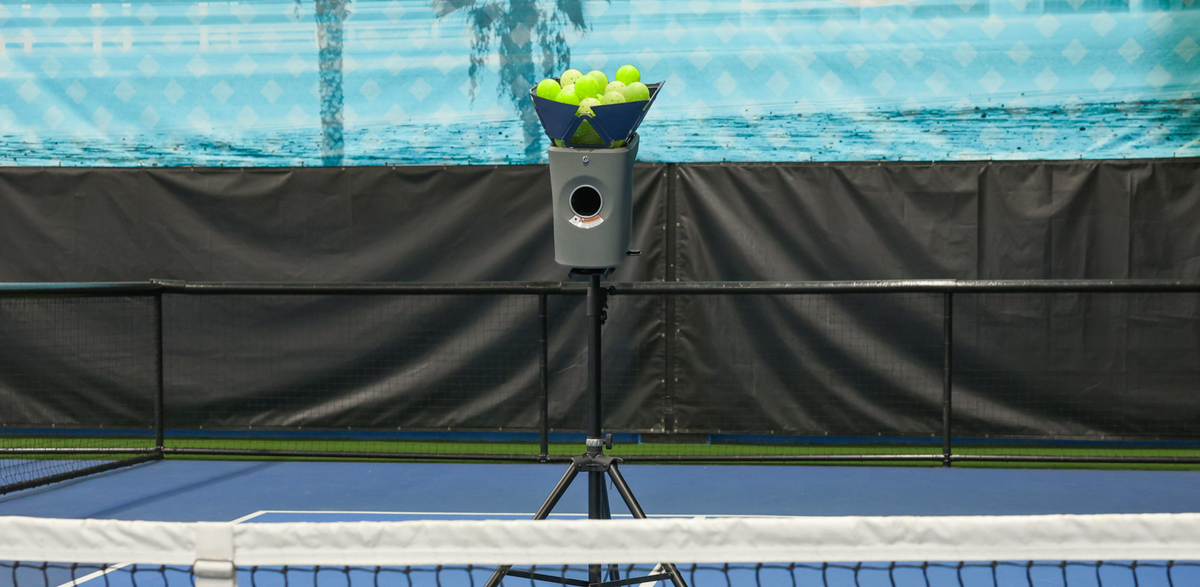
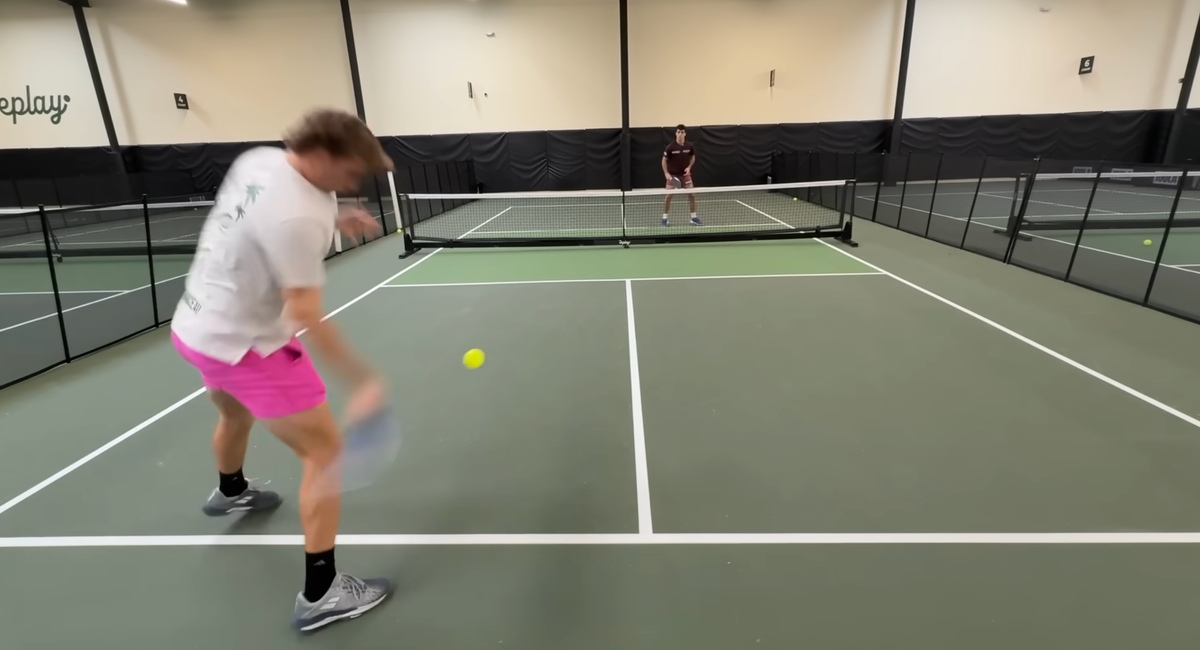




 English (US) ·
English (US) ·  Portuguese (BR) ·
Portuguese (BR) ·